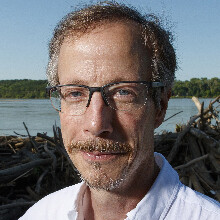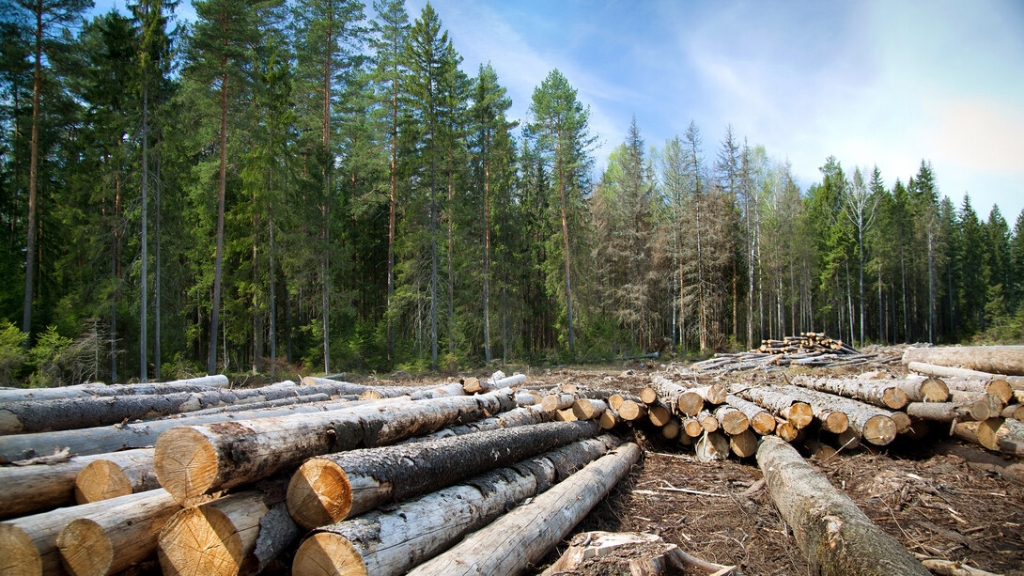center for resilience in agricultural working landscapes
Geitner Simmons, June 11, 2025
Allen chairs international panel outlining forest resilience strategies
An international panel chaired by Husker scientist Craig Allen is pointing to the crucial benefits forests provide and calling on countries to adopt well-informed resilience strategies. Forests face major challenges, locally and globally, from urban sprawl, conversion to agriculture, and climate stresses, raising concerns for communities, as well as for the planet’s climate.

“Once a particular forest has been fundamentally changed, it is impossible to restore it to that same state again,” said Allen, a School of Natural Resources professor with the University of Nebraska–Lincoln’s Center for Resilience in Agricultural Working Landscapes.
Forests provide important benefits locally by supporting livelihoods and community viability, enabling ecological biodiversity and filtering water to help water quality. At the global level, forests play a key environmental role by storing significant amounts of carbon, which helps regulate atmospheric carbon levels affecting Earth’s temperature levels.
Everyone on Earth has a vested interest in encouraging forest sustainability, regardless of whether they live near wooded areas, the scientists said in a newly released report, “Forests for Social and Economic Resilience,” for the International Union of Forest Research Organizations.
“No one is immune from the benefits of forests, even if they live in a total grassland,” Allen said.
The forest research organization released the report June 5, describing it as “the first of its kind to comprehensively explore how forests contribute to social and economic resilience in the face of disturbance and change, and how societies can, in turn, support and steward resilient forest systems.”
In 2024, the organization named Allen to chair a multidisciplinary, international panel to write the report, which was peer edited through several stages. The panel included experts in fields including ecology, economics, policymaking, governance and indigenous communities.
It was vital that the project also include broad geographic representation, Allen said. Members were from the United States, Mexico, India, the United Kingdom, Spain, Italy, Brazil, Nepal and the Philippines.
Some participants explained how communities interact with forests, for example, ensuring that the report included considerations not only of global impact, but of direct effects at the local level.
The panel worked to incorporate key findings from multiple disciplines to provide a more comprehensive analysis, and writers’ regional-specific knowledge ensured accuracy.
“Integrating knowledge and learning from each other was critically important,” Allen said. “So was the willingness to be heavily edited by your colleagues to make sure we were bringing in the most current and sound science.”
Key points in the report include:
- Forest complexity. Forests must be understood in their full complexity, looking to ecological considerations but also to forests’ economic benefits and connections to local communities.
- Vital local benefits. In many parts of the world, survival of forests is critical for the future of local communities. Allen cites the example of mangrove forests, which may not be familiar to many Americans but in some countries are “really important to protecting coastal communities and providing crucial food sources and nurseries for numerous animal species.”
- Magnitude of threats to forests. Forests in general have a natural capacity to recover from disturbances such as fires, drought and pests. Still, data make clear that “the resilience of forests is declining significantly from local and global effects,” Allen said. “So, a precautionary approach to forest management is usually wise,” working preventively to head off forest deterioration. To that end, the report includes major sections on governance and policymaking, to explain and encourage forest policies that are “adaptive and transformative.”
“There is no silver bullet, per se,” Allen said. “A diverse array of policy interventions are necessary, and they vary with location.”
That approach is appropriate given the remarkable diversity of forests worldwide.
“Forests range from Mediterranean climate systems to tropical forests to forests in the Black Hills and everything in between,” Allen said.
Working with such a range of experts and viewpoints proved intellectually rewarding, Allen said.
“American academic approaches in knowledge differ from those in some countries, and approaches can differ among different institutions and departments,” he said. “Even if we’re in the same discipline, different things are emphasized.”
As a result, the panel members worked to reach consensus on important points. The report also identifies knowledge gaps warranting further study.
“It was interesting to see these multifaceted dimensions to a common problem,” Allen said. “I found this a very worthwhile undertaking.”






